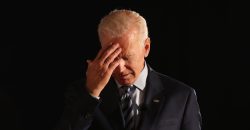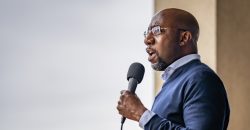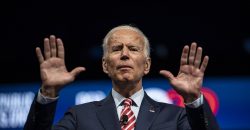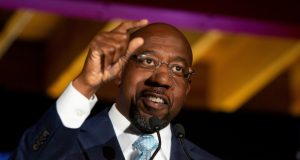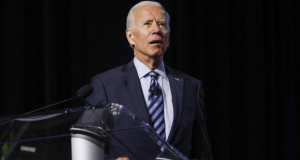WaPo Fact Check: Four Pinocchios for Sen. Harris SCOTUS Claim
WaPo fact-checked Senator Harris’ attack on Judge Kavanaugh as completely false, and called on her and the rest of the Dems to “drop this talking point.” Did Brett Kavanaugh signal he supports ‘going after birth control’? The Washington Post – The Fact Checker By Glenn Kessler September 11, 2018 “Kavanaugh chooses his words very carefully, […]
September 11, 2018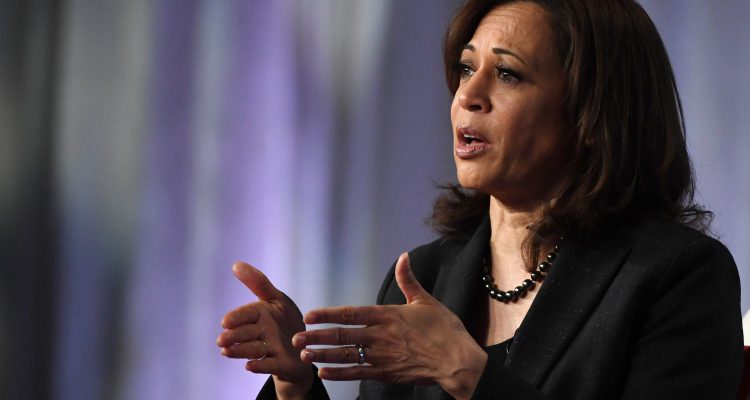
WaPo fact-checked Senator Harris’ attack on Judge Kavanaugh as completely false, and called on her and the rest of the Dems to “drop this talking point.”
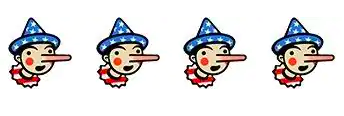
Did Brett Kavanaugh signal he supports ‘going after birth control’?
The Washington Post – The Fact Checker
By Glenn Kessler
September 11, 2018
“Kavanaugh chooses his words very carefully, and this is a dog whistle for going after birth control. He was nominated for the purpose of taking away a woman’s constitutionally protected right to make her own health care decisions. Make no mistake – this is about punishing women.”
— Sen. Kamala Harris (D-Calif.), in a tweet, Sept. 7, 2018
Harris took aim at Supreme Court nominee Brett M. Kavanaugh for comments he made regarding “abortion-inducing drugs” when discussing a case brought by an anti-abortion religious group challenging Obamacare rules on providing employees health coverage for contraception. She is not the only Senate Democrat to claim that Kavanaugh might undermine access to birth control if he wins a seat on the court – here’s Elizabeth Warren, Jeff Merkley, and Dianne Feinstein – but we will focus on Harris because she tweeted out a video that snipped out a key part of his statement.
A day later, it should be noted, Harris replied to her tweet with another video that provided the full context for Kavanaugh’s statements. But she then doubled down on her main point: “There’s no question that he uncritically used the term ‘abortion-inducing drugs,’ which is a dog whistle term used by extreme anti-choice groups to describe birth control.”
The Facts
In 2013, Priests for Life and other Catholic hospitals, universities and the like sued the Department of Health and Human Services over the requirement to provide contraception as part of health insurance coverage for employees. The Affordable Care Act included an opt-out provision, but the plaintiffs, citing the Religious Freedom Restoration Act, said their exercise of religion was unfairly burdened because the ACA required that they fill out a form or be subjected to monetary penalties. The Religious Freedom and Restoration Act, a 1993 law signed by Bill Clinton, was introduced in the House by then-Rep. Charles E. Schumer (D-N.Y.) and in the Senate by then-Sen. Ted Kennedy (D-Mass.).
A three-judge panel of the U.S. Court of Appeals for the D.C. Circuit rejected that argument in 2014. The plaintiffs tried to get a hearing by the full court the next year and failed again. Kavanaugh, a member of the court, filed a dissent to explain why he would have permitted a broader hearing.
During the Judiciary Committee hearings, Sen. Ted Cruz (R-Tex.) questioned Kavanaugh about the case, asking: “Can you tell this committee about that case and your opinion there?”
“That was a group that was being forced to provide a certain kind of health coverage over their religious objection to their employees, and under the Religious Freedom Restoration Act, the question was first, was this a substantial burden on the religious exercise? And it seemed to me quite clearly it was,” Kavanaugh replied. “It was a technical matter of filling out a form, in that case with — that — they said filling out the form would make them complicit in the provision of the abortion-inducing drugs that they were — as a religious matter, objected to.”
The issue at hand is Kavanaugh’s reference to “abortion-inducing drugs.” A plain reading of his sentence, with its reference to “they said,” suggests that he is merely reflecting the plaintiff’s argument. Harris’s decision to snip those crucial words from her first post on the video is certainly troubling.
But, as we noted, Harris is not backing down. “It had been originally just edited for length like almost all videos are, but wanted to make sure that if there was any confusion, we posted the full video so people can see,” said spokeswoman Lily Adams. “Our point in the original tweet is unchanged which is that he uses this term that is extremely political, and medically inaccurate with no critique or effort to note any type of disagreement.”
Adams pointed to a number of media reports, including in The Washington Post, that highlighted his use of the phrase “abortion-inducing drugs.” As readers know, just because it’s in the mainstream media doesn’t mean it’s correct. (The brief mention in The Post, which said he “appeared to refer to birth control as ‘abortion-inducing drugs,’” was mostly about anti-Kavanaugh tweets about his comment.)
Adams also noted that the plaintiffs in their briefs referred to “abortion-inducing products,” not drugs. Given that these were comments made during a public hearing, we don’t think the distinction is especially important.
Since this was a live event, when people can stumble in their remarks, we thought it would be worthwhile to review Kavanaugh’s dissent. How did he refer to the issue then?
In his dissent, Kavanaugh does not refer to abortion-inducing products. (Another dissent in the case did.) Instead, he makes three references to abortion, four references to abortifacients and 53 references to contraceptives or contraceptive.
For instance, in referring to the plaintiffs’s case, he writes: “They complain that submitting the required form contravenes their religious beliefs because doing so, in their view, makes them complicit in providing coverage for contraceptives, including some that they believe operate as abortifacients.” (At issue in particular is the morning-after pill, or Plan B, which some believe that it could thin the lining of a uterus and thus in theory could destroy a fertilized egg, though evidence of that is slim.)
That sounds rather similar to his spoken testimony: “It was a technical matter of filling out a form, in that case with — that — they said filling out the form would make them complicit in the provision of the abortion-inducing drugs that they were — as a religious matter, objected to.”
When it comes to contraception – which Harris and her colleagues suggest Kavanaugh is against – he wrote that the government appeared to have “a compelling interest in facilitating women’s access to contraception.” To alleviate the cost to society of unintended pregnancies, “the Federal Government has long sought to reduce the number of unintended pregnancies, including through the Affordable Care Act by making contraceptives more cheaply and widely available.” He added that a previous Supreme Court ruling “strongly suggests that the Government has a compelling interest in facilitating access to contraception for the employees of these religious organizations.”
Again, this sounded similar to the second part of Kavanaugh’s answer to Cruz: “The second question was did the government have a compelling interest nonetheless in providing the coverage to the employees and applying the governing Supreme Court precedent … I said that the answer to that was yes, the government did have a compelling interest.”
When we pointed out the section of the dissent concerning contraception, Adams countered that Kavanagh appeared to struggle to say whether previous Supreme Court rulings were correctly decided when the court said the government could not prohibit either married or unmarried people from using contraceptives. He instead referred to previous statements made by Chief Justice John G. Robert and Justice Samuel Alito: “That’s what they said.”
Adams challenged The Fact Checker to obtain a statement from the White House that Kavanaugh believes that the term “abortion-inducing drugs” is inaccurate.
“Judge Kavanaugh was asked specifically about his dissent and cited the plaintiff’s position. The fact that critics removed the phrase ‘they said’ from his answer shows that they knew he was citing the party’s opinion and were deliberately trying to mislead the public,” said White House spokesman Raj Shah. “As Judge Kavanaugh’s opinion stated, based on the Supreme Court’s interpretation of the Religious Freedom and Restoration Act, it’s the court or a judge’s job to determine ‘only the sincerity of a plaintiff’s religious belief, not the correctness or reasonableness of that religious belief.’”
The Pinocchio Test
Some might argue that it’s a judgement call, open to legal interpretation, as to whether Kavanaugh “uncritically” used a term that riles advocates of abortion rights.
But a plain reading of Kavanaugh’s answer during the hearings shows that it is broadly consistent with his written opinion. One can question why he used the phrase “abortion-inducing drugs” rather than “abortion-inducing products” or “abortifacients.” But it’s pretty clear from the context that he was quoting the views of the plaintiffs rather than offering a personal view.
Harris’s original tweet, with the “they say” language removed, was slightly mitigated by the second tweet a day later, providing the full context. But there was no acknowledgement by Harris that the original tweet was misleading. She earns Four Pinocchios – and her fellow Democrats should drop this talking point.
Four Pinocchios
Originally posted on America Rising Squared.
Keep tabs on the Democrats. Sign up for news.
Keep tabs on the Democrats. Sign up for news.

